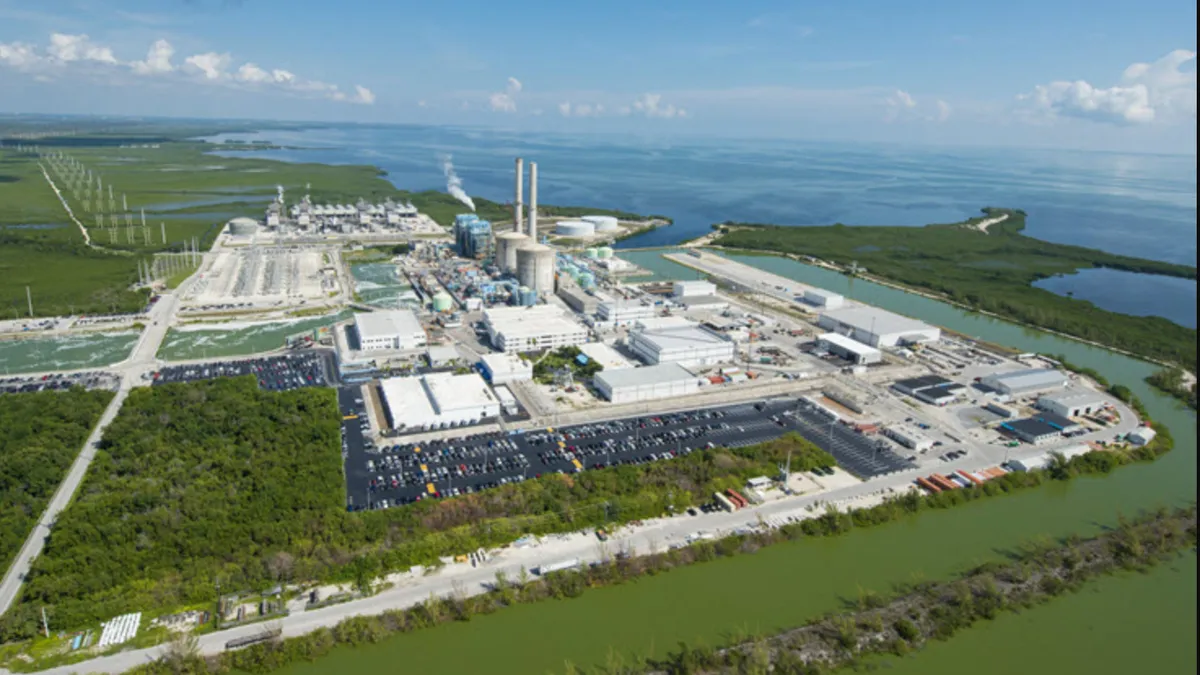Dive Brief:
- Staff of the U.S. Nuclear Regulatory Commission (NRC) have issued a final environmental review that moves Florida Power & Light one step closer to operating two units at its Turkey Point Nuclear Generating Station for 80 years — twice the length of the utility's initial license.
- FPL was the first utility to request a second 20-year license extension, though it is years ahead of a current license expiration: the plant's two oldest units are currently allowed to operate past 2030. Dominion Energy is also seeking a 20-year license extension to 80 years for its Surry 1 and 2 nuclear units.
- Nuclear advocates say a growing number of nuclear units are likely to request second operating extensions as utilities work to meet clean energy and greenhouse gas emissions goals.
Dive Insight:
Operating a nuclear unit for 80 to 100 years may raise eyebrows but advocates say it can be done safely and is very likely necessary in order for power providers to meet the clean energy commitments they've made.
The practical life of these units is "substantially longer than some people had assumed" according to Matt Wald, a spokesman for the industry advocacy group Nuclear Energy Institute. The 40-year initial licensing "was mostly an accounting calculation," he said.
In a statement, the NRC said the Final Environmental Impact Statement concluded the impacts of renewing the Turkey Point licenses "are so limited that preserving the renewal option for energy planning decision-makers would not be unreasonable."
Turkey Point is located approximately 20 miles south of Miami. The NRC will still need to make a final decision on FPL's application.
According to NEI, half of nuclear power plants in the United States will need to obtain a second renewed operating license by 2040 to continue operating.
"Many companies that own these reactors have committed themselves to carbon reduction and they know they can't get there without their nuclear fleets," said Wald. "These are well-performing assets."
Dominion Energy also wants to extend the operating lives of two of its reactors — Surry 1 and 2 — to 80 years. The NRC on Monday launched a public comment process on its Draft Environmental Impact Statement for that license renewal application.
NRC Seeks Public Comment on for Surry Subsequent License Renewal
In addition to extending the licenses of existing plants, the nuclear industry is also looking to the development of smaller, modular reactors to generate emissions-free energy. Federal regulators in July completed the second and third phases of the review of a small modular reactor design developed by NuScale Power. The company is on track to develop a 12-module plant in Utah by the mid-2020s.















